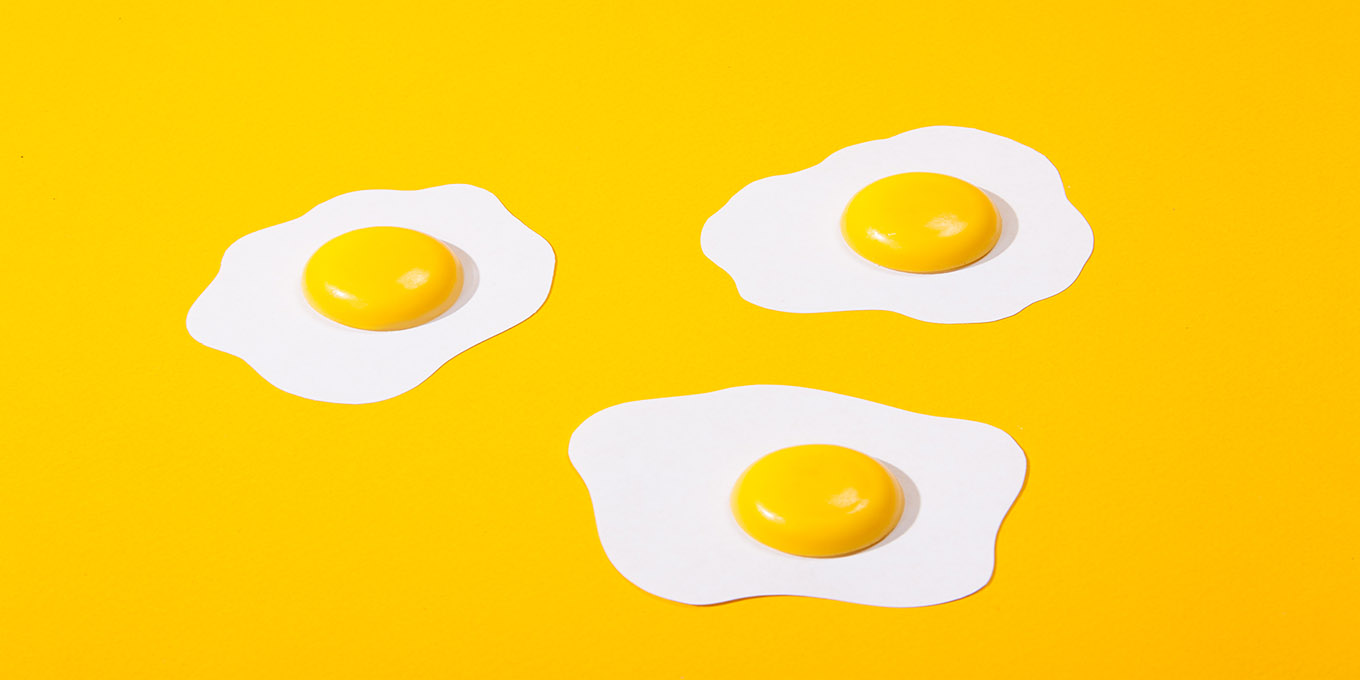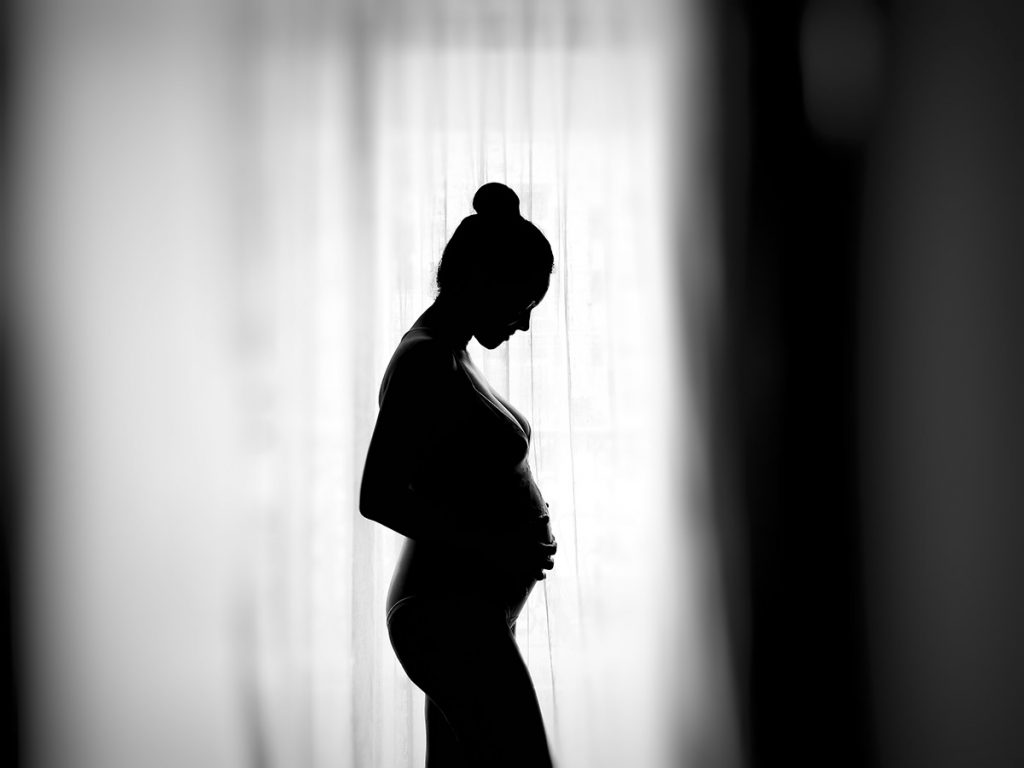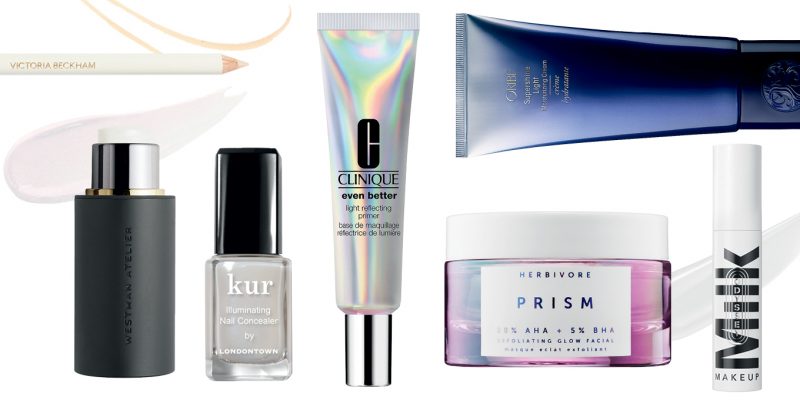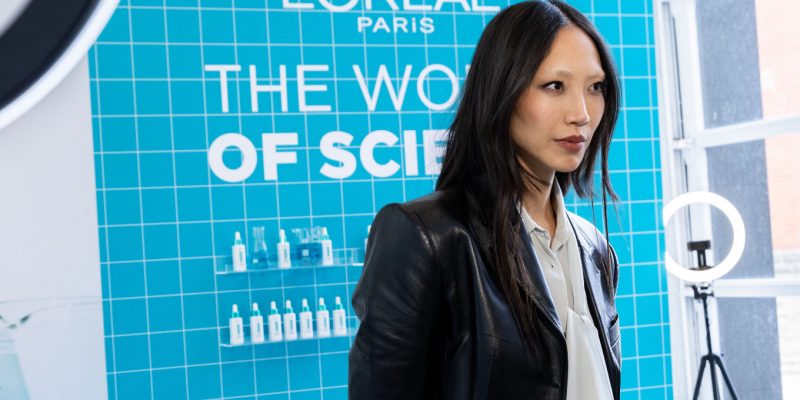Health & Fitness
Should I Freeze My Eggs?
The number of women choosing to freeze their eggs is rising year on year. But considering less than a fifth of patients end up using their eggs to have a child, the treatment’s cost and the physical and psychological toil, we've got to ask ourselves, is it really worth it?
by : Katie O'Malley- Jul 13th, 2021

Getty Images
What is the optimum age, if there is one, to have a child?
We know that fertility declines as time goes on – we’ve been told it takes something of a nosedive after 35 – so mother nature suggests younger is better. Yet, despite our early 20s being peak childbearing years biologically, better access to contraception, rising housing and living costs and the increasing number of women entering senior positions mean that each year we nudge the average age of first conception back a little bit.
For these reasons and the mounting fear that a year of lockdown has pushed back our dating and procreating plans considerably, egg freezing is on the up and up.
When it comes to choosing whether or not you want to freeze your eggs, it’s important to know the facts. Let’s be clear – it is an expensive and physically demanding process. Age affects the success rate enormously and the storage time limit alone can result in some women not being able to use their eggs before they become inviable.
We spoke to fertility regulators, embryologists and women who have frozen their eggs to find out more about the process and whether it’s worth your time, hopes and finances.
 Getty Images
Getty ImagesWhat is egg freezing?
Egg freezing does exactly what it says on the tin, so to speak. It’s a fertility treatment which involves collecting a woman’s eggs from her ovaries, freezing them and then thawing them at a later date.
As women’s chances of conceiving naturally decline with age – seven out of 10 women aged 30 will conceive within one year, compared to four out of 10 women aged 40 – so too does the quality and quantity of the eggs. Remember, women are born with all their eggs already in their ovaries and as they age, so do their eggs.
As a result, egg freezing is seen as one way of preserving a woman’s fertility so she can try to become pregnant at a point in the future, ideally removing eggs while a woman is young (i.e. at peak fertility) in order to collect eggs of the highest quality.
Liz Beardsell, creator and host of the sex and relationship podcast Diary, She Wrote, began freezing her eggs in 2018. It was during a brief relationship, aged 36, after being single for five years that she looked into the treatment. “Before that I hadn’t really had a maternal desire,” she tells ELLE UK.
“But when I was dating my ex, I thought ‘Oh, actually, if I do meet the right person, then maybe I can see that sort of maternal desire growing’. I’m a really practical person and had savings, so egg freezing seemed like a sensible thing to do.”
What does egg freezing involve?
Before a woman goes ahead with egg freezing, they must first be tested for infectious diseases, such as HIV and Hepatitis. It’s important to note that while these diseases don’t affect a woman’s eligibility to freeze her eggs, tests help inform medical experts whether some egg samples should be stored separately in order to prevent contamination.
“What’s key for anybody considering IVF to know, is that it’s not just a case of going and store your eggs – egg freezing requires a lot of time, commitment and several tests,’ notes Rachel Cutting, Rachel Cutting, embryologist and the HFEA’s director of compliance, listing off doctor and nurses appointments, blood tests to check hormone levels, ovary scans and counselling sessions.
Following testing, the egg harvesting process begins, which involves a woman taking two types of medication – one known as down-regulation which suppresses the body’s hormones to better control ovulation and another called a stimulation drug which boosts egg production and helps them mature. This means at least 10-14 days of hormone injections, up to three times a day, which a patient must administer themselves, in addition to regular blood tests at a clinic.
Beardsell describes the hormone injections as an “intense process” and one that she wasn’t entirely prepared for. “It seemed so alien that the experts trust you with needles, to measure out the correct amount of medication, push air out of the needle, not get shards of glass into the medication after breaking its glass valve, and inject yourself at specific times of day,” she says. From injecting herself at her work desk, to finding a wall outside her friend’s 30th birthday party venue to lay out her injection kitt, it’s no wonder the podcast host recalls the process as “quite bonkers”.
When it comes to the injections, Cutting describes them as like “little diabetes pens”, adding that while they aren’t difficult to use, the process is a “commitment”. “You’ve got to carry the needles around with you, remember to administer the drugs at the same time every day and regularly visit your clinic to see how you’re responding to the medication.”
Once the injection phase is complete, eggs will then be collected, vaginally, during a medical procedure whereby a woman will be placed under general anaesthetic or conscious sedation with pain relief. “A scanning probe is inserted through the vagina and a needle goes up to the ovary, where each follicle fluid sack is located. The clinician will then draw out the fluid to – hopefully – find an egg,” explains Cutting. The entire process takes around 20-30 minutes and can result in mild period pain-like symptoms or more severe issues (noted below).
It’s common for about 15 eggs to be collected from a patient during this process, but it depends on numerous factors about the woman’s fertility, notes the HFEA.
Once this is completed, a cryoprotectant (more commonly known as a freezing solution) will be added to coat the eggs before they’re frozen, which is then done either by cooling them down slowly or by the more common, and increasingly more successful, process of vitrification (fast freezing, which involves storing them in liquid nitrogen at around -196 degrees Celsius in containers called dewars).
When a patient decides to use their frozen eggs, they will be thawed and those that have survived will then be injected with a donor’s or partner’s sperm.
What’s the best age to freeze your eggs?
Deciding when to freeze your eggs is incredibly difficult, because it’s just not as simple as “the younger, the better”.
If you’re thinking about freezing your eggs, the HFEA states that it’s best to do it before your 35th birthday. This is if you want the highest chance of success compared to trying to conceive naturally, particularly after the age of 40.
“The most important thing to think about when you think of eggs is a woman’s age,” emphasizes Cutting. “It’s not the age of the woman when an embryo goes back into the body that’s crucial, rather the age of the egg when it was collected.”
But in reality, the idea of collecting eggs from a very young woman and expecting her to be able to use them to become pregnant if she only feels ready many years later, is injudicious. In fact, the average age of women opting for egg freezing is 38. The majority of women prefer to freeze their eggs later in life for several reasons: the younger you are when you freeze your eggs the less likely you’re going to use them as you might conceive naturally and most women in their 20s and 30s don’t have the finances to freeze eggs in the first place.
Additionally, even if young women opt in, they might not be able to use their eggs by the time the 10-year storage limit expires (more on this below). For example, a 20-year-old who freezes their eggs would have to have used them by the age of 30 or risk them perishing. So if you’re freezing your eggs while very young, you really might not get to use them by the time you feel ready to take the leap.
How successful is egg freezing?
Before you freeze your eggs, it’s worth bearing in mind that the process does not guarantee success. While research and treatments are improving, only 18 percent of patients using their own frozen eggs in IVF treatment have a baby, according to the HFEA.
It will come as no surprise that using fresh eggs has a higher success rate than that of frozen eggs and embryos. “Egg freezing is an invasive procedure for an egg to go through. You need to hydrate, freeze, store and thaw the egg, which not all eggs can survive,” Cutting explains.
However, as a result of vitrification technology, eggs are now much more likely to survive the thawing process (over 90 percent survival rate when the woman is under 35), according to Create Fertility.
If you decide to freeze your eggs in your late 30s, when fertility and the success rates of an egg leading to pregnancies are already in decline, you may require more than one cycle of treatment to collect the eggs for storage. “That will be more invasive on your body, your life and, if you’re paying for treatment, your bank balance. But on the other hand, you are probably more likely to use your frozen eggs in the future,” the HFEA notes.
If frozen eggs don’t lead to a pregnancy, IVF is still a possibility for those who are unable to conceive naturally (using fresh eggs), as is adoption.
When it comes to data regarding the success rate of egg freezing, Cutting warns that given the fact egg freezing makes up just 1.5 percent of IVF cycles currently carried out, there’s not enough verified data to provide accurate egg freezing success rate statistics yet. “A lot of eggs are being frozen, but not many have been used yet,” she adds, alluding to the relatively new yet improving technology that’s used to carry out egg freezing.
“It’s important for patients to go and have counselling, talk to their doctor and try to find out realistically what their chances are because it might be less than 25 percent of having a baby at the end of it,” notes Cutting. “It’s great to take control of your fertility, but you’ve got to be realistic about it.”
How much does egg freezing cost?
The majority of women who opt for egg freezing pay for the treatment privately.
Costs vary depending on the clinic, but are usually in the region of $10,000 CAD to extract and freeze the eggs, $300 per year to store them, and $6,000 to cover the cost of one IVF cycle.
Melinda Mesiano, 30, tells us that she and her friends regularly discuss the possibility of egg freezing, but that she’s turned off by the eye-watering cost. “I’m not 100 percent sure if I want children, so, for me, I’d essentially be investing in the possibility of wanting children in the future. I’ve looked into it multiple times, but the cost is too high when you’re not certain,” she admits. “On the flip side, I do worry that in 10 years’ time I will want kids and then it could be too late.”
Author and How To Fail podcaster Elizabeth Day has previously written about her experience of egg freezing process, describing it as “invasive and brutal” and noting the true financial strain it can place on women.
“Every year, I now get a brutal reminder of time passing when the storage invoice lands on my doormat and I pay it off, wondering if I’ll ever get to a point where I want to use them and asking myself if I am emotionally strong enough to withstand the almost inevitable failure that lies ahead,” she wrote.
How safe is egg freezing?
Overall egg freezing is safe, but some patients experience side effects from the fertility drugs, which can range from mild discomfort to more severe issues.
The main risks of fertility treatment are:
a multiple birth
ovarian hyperstimulation syndrome (OHSS)
an ectopic pregnancy
possible birth defects (the authority notes that this is rare and research is ongoing)
How long can eggs be stored for?
On average, eggs can be stored for up to 10 years, but in some cases, such as if the patient became prematurely infertile due to medical treatments, some might be able to keep them frozen for up to 55 years.
The HFEA has described the current limit as “too restrictive” and proposes several conditions, including the patient providing new written consent to storage every 10 years (up to a maximum of 55) and that a clinic offers the patient counselling before they consent to every additional 10 years storage.
Regardless of limit, it’s important a woman keeps their clinic up to date with their change of address and contact details as if it’s unable to reach you at the end of the 10-year consent period, it might have to remove your eggs from storage.
What happens if you decide to use your eggs?
If a woman decides to use their eggs they must contact the clinic and discuss the thawing process. Thawed eggs must be fertilised using a treatment known as Intracytoplasmic sperm injection (ICSI) as the freezing process strengthens the coating around the eggs and makes it harder for sperm.
There are also several options if you’ve frozen your eggs and don’t want to use them. You can donate them to research to help the medical community look further into infertility and treatments, donate them as samples for trainee embryologists to practice different techniques, or donate them to another person.
You can also choose to discard them, which will involve the removal of the eggs from the dewars and allowing them to perish in warmer temperatures. “What we’ve seen, and what’s in the literature, is that many women who do freeze their eggs will never go back and use them,” says Cutting.
This story originally appeared on ELLE UK
Read more:
Are Adaptogens the Secret to a Glowing Complexion and Healthy Skin?
What You Should Know Before Whitening Your Teeth at Home
Diet Culture Has Seriously Impacted Our Relationship With Food
Newsletter
Join our mailing list for the latest and biggest in fashion trends, beauty, culture and celebrity.
Read Next

Beauty
The Best Met Gala Beauty Looks Of All Time
From Taylor Swift's 'Bleachella' era to Rihanna's iconic 2011 braids, meet the best beauty moments in Met Gala history.
by : Katie Withington- Apr 26th, 2024

Culture
Benny Blanco Says He Fell in Love With Selena Gomez Without ‘Even Noticing’ It
Allow Benny Blanco to tell the straight-from-a-rom-com story of how he realized his feelings for his girlfriend and longtime friend.
by : Alyssa Bailey- Apr 26th, 2024

Beauty
ELLE Tried It: Five Serums to Up Your Skincare Game
Members of the ELLE team tested Avène Dermatological Laboratories’ five new concentrated serums. Here's what they thought.
by : ELLE Canada- Apr 25th, 2024




